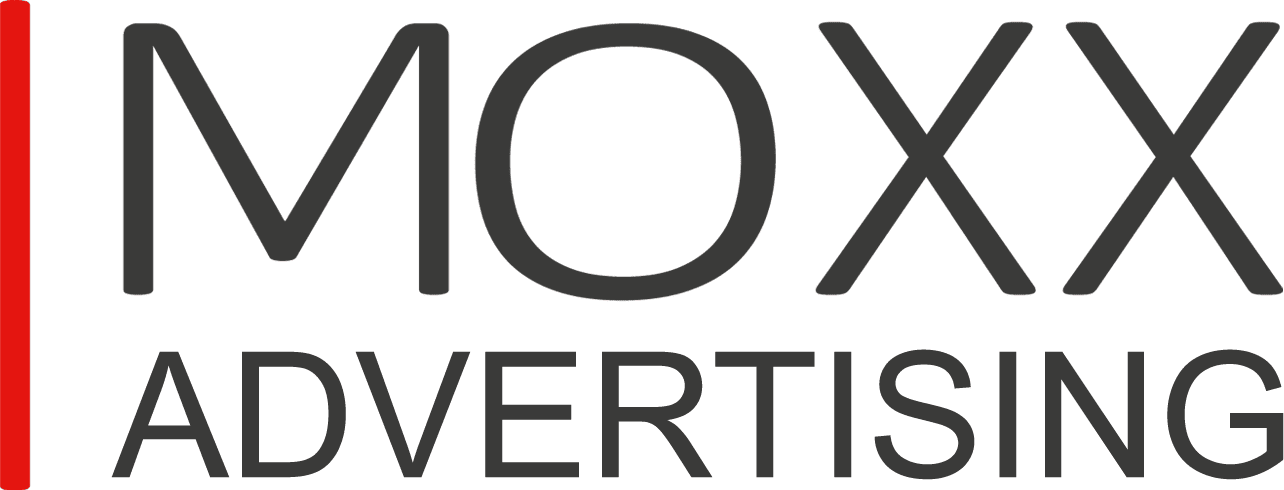Social media management
Social media management is directly related to your online presence on platforms where millions of people constantly surf: Facebook, Instagram, Twitter, Pinterest, LinkedIn, and more. Professional social media management support can propel your business to a new stage of development.
What is social media?
Social media management refers to the process of planning, creating, publishing, and managing content on various social networks with the aim of achieving marketing goals and interacting with the audience.
Effective social media management requires several key elements:
- Strategic planning: The way you will use social media should be part of your broader marketing strategy. Define your goals, target audience, and key messages you want to convey.
- Platform identification: Choose the social media platforms that best align with your goals and target audience. Different social networks can be suitable for different types of content and businesses.
- Content and creativity: Create quality content that engages your audience. This can include text, images, videos, and other media materials. Focus on solving problems and addressing the interests of your audience.
- Publishing and scheduling: Distribute your content evenly over time using social media management tools that allow you to schedule your posts. Ensure that your content is up to date and responds to current events and trends.
- Engagement and interaction: Respond to comments, questions, and messages from your audience. Interacting with users is a key factor in building relationships and increasing trust.
- Analysis and measurement: Use analytical tools to measure the effectiveness of your posts and advertising campaigns. Analyse engagement, reach, and conversions data to optimise your strategy.
- Advertising campaigns: The option to advertise on social networks allows you to increase the visibility of your content and reach a broader audience. Use paid advertising campaigns when necessary.
- Crisis management: Be prepared to handle potential crises or negative situations on social networks. Have a plan and a strategy for quick response.
Social media management requires modern marketing practices, analytics, and attention to detail. This can be done by your in-house team or by hiring a specialised marketing agency.
Types of social media
Social media are online platforms and websites that allow users to connect, share information, and communicate with other users. They provide various ways to share text messages, images, videos, and other media content.
Some of the most popular social media platforms include:
- Facebook: One of the largest social networks where users can create profiles, share content, and communicate with friends.
- Twitter: A microblogging platform where users share short messages called “tweets” and can follow other users.
- Instagram: Specialised in sharing photos and short videos. Popular among young users and photographers.
- LinkedIn: A professional social network where users create profiles, share professional achievements, and connect with colleagues and business partners.
- YouTube: A platform for sharing videos. Users can upload and watch videos on various topics.
- Pinterest: Focused on saving and sharing images and ideas on virtual boards.
- Snapchat: A platform where users can share short-lived photos and videos that disappear after a brief time.
- TikTok: A popular platform for sharing short musical videos and entertaining content.
- Reddit: A forum platform where users share news articles, images, and content that can be discussed in various communities (subreddits).
- WhatsApp: A popular instant messaging and voice-calling app.
- Vkontakte (VK): A Russian social network similar to Facebook, mainly used in Russia and neighbouring countries.
These are just some of the many social media platforms available in the market. Each of them has its unique characteristics and audiences, making them suitable for different purposes and users.
Digital marketing
Digital marketing refers to the use of digital technologies and online channels to promote, advertise, and market products and services. This type of marketing encompasses various strategies and methods that are purposefully used to reach the target audience, increase popularity, and boost sales.
Here are some of the key components and methods of digital marketing:
- Website and Search Engine Optimisation (SEO): Creating a website that is attractive, functional, and optimised for search engines is a fundamental element of digital marketing. SEO involves optimising the website to improve its visibility in search engine results like Google.
- Content marketing: Publishing high-quality content such as articles, blog posts, videos, and other formats that purposefully inform and engage the audience.
- Social media marketing: Using social networks like Facebook, Twitter, and Instagram to share content, interact with users, and advertise.
- Paid advertising campaigns: Utilisng advertising platforms like Google Ads and Facebook Ads for targeted advertising to potential customers.
- Email marketing: Sending personalised emails to subscribers or customers to promote products, inform, and increase sales.
- Analysis and result measurement: Using analytical tools like Google Analytics to track and analyse the results of digital marketing and adjust the strategy.
- Video marketing: Creating and sharing videos that can be published on websites or social media for engagement and informing the audience.
- Mobile marketing: Optimising marketing campaigns for mobile devices, including advertising through mobile apps and SMS marketing.
- Affiliate marketing: Collaborating with other online partners and affiliates for product referrals and sales.
- Influencer marketing: Partnering with well-known individuals (influencers) for product and service promotion to their audiences.
Digital marketing is evolving rapidly and provides a rich set of tools and opportunities for companies and marketing professionals to connect with their target audience and achieve their goals.
Digital marketing in social media
Digital marketing in social media refers to the use of social networks as platforms for advertising, promoting, and interacting with the target audience. This type of marketing offers numerous opportunities for businesses and brands to connect with users and achieve various goals, such as increasing popularity, generating sales, retaining customers, and more. Here are some of the key strategies and methods for digital marketing in social media:
- Content marketing: Publishing high-quality and valuable content that attracts and engages the audience. This includes text posts, images, videos, and other media formats.
- Planning and scheduling: Creating a content plan and a specific publishing schedule to ensure regularity and consistency.
- Sponsored posts and advertising: Using paid advertising campaigns on social media, such as Facebook Ads and Instagram Ads, to target ads to specific audiences.
- Engagement and interaction: Responding to comments, interacting with users, and encouraging dialogue.
- Use of hashtags: Employing hashtags to help users find your content and connect with similar topics.
- Influencer marketing: Collaborating with influencers – well-known figures on social media who can assist in promoting products and services to their followers.
- Stories and live video: Utilisng features like Instagram Stories and Facebook Live to share real-time events and engage with the audience.
- Monitoring and analysis: Tracking and analysing the results of social media marketing efforts through tools and analytics.
- Specialised video platforms: Using platforms like YouTube and TikTok for sharing video content and advertising.
- Social commerce: Integrating e-commerce into social media to facilitate direct shopping on the platforms.
- Social analytics and smart solutions: Using social analytics tools and artificial intelligence for a better understanding of the audience and strategy optimisation.
Digital marketing in social media offers exceptional opportunities for businesses and brands to connect with their audience, generate interest and engagement, and achieve marketing goals.
Digital marketing agency
A digital marketing agency is a company or organisation that specialises in providing professional digital marketing services to its clients. These agencies offer a variety of services and strategies aimed at increasing online visibility, audience engagement, and results in the online space. Here are some of the primary services that digital marketing agencies offer:
- Website design and optimisation: Creating attractive and functional websites, as well as search engine optimisation (SEO) to improve visibility in search engine results.
- Content marketing: Creating high-quality content such as articles, blog posts, videos, and graphics that inform and engage the audience.
- Social media marketing: Managing social media profiles, creating content for social networks, and organising social media advertising campaigns.
- Paid advertising campaigns: Building and managing paid campaigns using platforms like Google Ads, Facebook Ads, and others.
- Email marketing: Creating and sending email campaigns to promote products and services.
- Analysis and result measurement: Using analytical tools to track the effectiveness of marketing efforts and optimise the strategy.
- Video marketing: Creating and sharing video content for social media and other platforms.
- Influencer marketing: Collaborating with influencers and well-known figures on social media to promote products and services.
- Social commerce: Integrating online stores and electronic payments into social media.
- Consulting services and strategies: Providing consultations and developing digital marketing strategies that meet the goals and requirements of clients.
Digital marketing agencies work with various types of clients, including small and large businesses, non-profit organisations, startups, and others, to help them achieve online success and realise their marketing goals.
Marketing agencies
Marketing agencies are specialised firms or organisations that provide various marketing services to their clients with the goal of improving the visibility, engagement, and success of their marketing campaigns. These agencies typically have teams of marketing specialists who work with clients to develop and execute strategies and campaigns that meet their specific marketing goals and needs. Here are some of the services that marketing agencies commonly offer:
- Strategic marketing consultations: Agencies assist clients in formulating marketing strategies, defining goals, and target audiences.
- Digital marketing: Providing services such as website design and search engine optimisation (SEO), social media marketing, paid advertising campaigns, and email marketing.
- Content marketing: Creating and distributing high-quality content, including articles, blog posts, videos, and other media materials.
- Brand management and positioning: Assisting in the creation and establishment of the client’s brand in the market.
- Event and trade marketing campaigns: Organising and promoting events, exhibitions, promotions, and other trade-related activities.
- Media planning and buying: Determining appropriate media channels and executing advertising campaigns.
- Internet advertising: Utilising digital advertising methods such as banners, retargeting, and social media advertising.
- Analysis and result measurement: Using analytical tools and data to track the effectiveness of marketing campaigns.
- Training and educational programs: Offering training to clients on marketing strategies and practices.
- Market and consumer research: Conducting market analysis and research to identify trends and consumer preferences.
Marketing agencies work with various types of clients, including small and large businesses, non-profit organisations, startups, and others, to help them achieve their marketing goals and improve their online and offline market presence.
- Website design and optimisation: Creating attractive and functional websites, as well as search engine optimisation (SEO) to improve visibility in search engine results.
- Content marketing: Creating high-quality content such as articles, blog posts, videos, and graphics that inform and engage the audience.
- Social media marketing: Managing social media profiles, creating content for social networks, and organising social media advertising campaigns.
- Paid advertising campaigns: Building and managing paid campaigns using platforms like Google Ads, Facebook Ads, and others.
- Email marketing: Creating and sending email campaigns to promote products and services.
- Analysis and result measurement: Using analytical tools to track the effectiveness of marketing efforts and optimise the strategy.
- Video marketing: Creating and sharing video content for social media and other platforms.
- Influencer marketing: Collaborating with influencers and well-known figures on social media to promote products and services.
- Social commerce: Integrating online stores and electronic payments into social media.
- Consulting services and strategies: Providing consultations and developing digital marketing strategies that meet the goals and requirements of clients.
Digital marketing agencies work with various types of clients, including small and large businesses, non-profit organisations, startups, and others, to help them achieve online success and realise their marketing goals.
Digital advertising
Digital advertising is a form of marketing that utilises digital technologies and online channels for promoting and advertising products and services. It provides numerous tools and methods that allow businesses and marketing professionals to reach their target audience in a more targeted and effective manner. Here are some of the key components and methods of digital advertising:
- Paid advertising campaigns: Using advertising platforms such as Google Ads, Facebook Ads, Twitter Ads, and LinkedIn Ads to place ads in search results, social media, and other online media. These advertising campaigns are based on a pay-per-click (PPC) model, where you pay only when users click on your ad.
- Banners and display advertising: Publishing banners and ads on various online media, including news sites, blogs, and other websites.
- Social media advertising: Advertising products and services on social networks such as Facebook, Instagram, Twitter, and LinkedIn through paid advertising campaigns.
- Online Public Relations (PR): Using online media, blogs, and other channels to create and maintain a positive brand image.
- Video advertising: Publishing videos and ad clips on online platforms like YouTube, as well as on social networks.
- Mobile advertising: Optimising ad campaigns for mobile devices and using mobile advertising platforms and apps.
- Retargeting and personalised ads: Using user behaviour data to provide personalised ad messages and target individuals who have shown interest.
- Email advertising: Sending promotional emails and newsletters to subscribers to advertise products and services.
- Affiliate marketing: Collaborating with affiliates and partners to promote products and services and share revenues.
- Sponsored content: Partnering with publishers and influencers to create sponsored content.
Digital advertising offers the opportunity for more targeted and measurable advertising of products and services in the online environment, Utilisng a rich array of tools and analytics to assess the effectiveness of advertising campaigns and adjust strategies according to consumer needs and preferences.
Advertising on Facebook
Advertising on Facebook is an effective way to reach a large audience and direct your advertising messages to users who are most likely interested in your products or services. Here are steps and key aspects related to advertising on Facebook:
- Create a Facebook business page: If you don’t already have one, create a business page on Facebook. This page will serve as the primary platform for publishing ads and managing your campaigns.
- Define your target audience: Identify precisely who your target audience is. Facebook allows you to target your ads based on demographic data, interests, behaviours, and other parameters.
- Create an advertising campaign: Use Facebook Ads Manager or Business Manager to create a new advertising campaign. Here, you’ll need to choose the campaign objectives, such as website traffic, leads, video views, or page engagement.
- Choose ad format and type: Facebook offers various ad formats, including text ads, images, videos, carousels, and more. Select the format that best suits your goals.
- Set your budget and campaign duration: Set the budget you’re willing to invest in your advertising and determine the campaign’s duration.
- Create ad creatives: Develop content for your ads, including headlines, text, and visual elements. Ensure your ads are engaging and inspiring for your audience.
- Configure targeting: Use targeting options to reach the exact audience you want. This includes selecting demographic criteria, interests, behaviours, and more.
- Choose ad placements: Determine where and how your ads should appear, such as in desktop news feeds, mobile news feeds, Instagram, and other locations.
- Review and confirm: Review your advertising campaign, set the budget and schedule, and confirm your order.
- Monitoring and optimisation: Monitor your campaign’s results in real-time and make adjustments to optimise it based on the outcomes achieved.
Facebook provides various tools and analytics to help you measure the effectiveness of your advertising efforts and make corrections to achieve better results. It’s essential to test different strategies and messages to determine what works best for your audience.
Why social media is a good advertising medium?
Social media is a powerful and effective advertising medium due to several key advantages:
- Large audience: Social media platforms have a vast number of active users worldwide. Platforms like Facebook, Instagram, Twitter, LinkedIn, and others have millions and millions of users who can be reached through advertising campaigns.
- Demographic targeting: Social media provides rich targeting options for directing your advertising messages to specific user groups. You can select a target audience based on demographic data (such as age, gender, location), interests, behaviour, and other criteria.
- Interactivity and engagement: Social media is a platform where users can directly interact with your ads. This creates opportunities for engagement, comments, sharing, and feedback from the audience.
- Measurable effectiveness: Social media offers tools for measuring and analysing the results of advertising campaigns. You can see how many people view your ads, how they engage with them, and what actions they take afterward. This allows you to adjust and optimise your strategy.
- Lower costs compared to traditional advertising: Social media often provides cost-effective advertising options compared to traditional media like television and print publications. You can set a budget that suits your business and pay only for the results you achieve.
- Flexibility and speed: In social media, you can quickly launch and modify advertising campaigns. This allows you to adapt to current events and trends.
- Content marketing opportunities: Social media provides a space for creating and sharing high-quality content that can engage and educate your audience.
- Global presence: Social media allows small businesses and startups to reach a global audience without significant investments in infrastructure and logistics.
These advantages make social media an essential and effective advertising medium that can help businesses increase their visibility, generate interest and engagement, and achieve their marketing goals.
Prices for social media management and development
Prices for social media management and development can vary significantly depending on several factors, including the scope of services, specific client requirements, regional differences, and the reputation of the marketing agency or specialist providing the services. However, I can provide you with general guidelines on what to expect when determining prices:
- Scope of services: The first and most significant factor influencing the price is the scope of services you choose. For example, whether you want basic social media management and content maintenance or additional services such as content creation, analytics and reporting, advertising campaigns, and others.
- Number of social media platforms: Prices will vary depending on how many social media platforms you want to be present on. Managing a larger number of social media platforms usually requires more resources and time.
- Regional differences: Prices can also vary depending on your region. Major cities and developed economies like the United States and Western Europe typically have higher prices compared to smaller cities or less-developed regions.
- Specialised services: If you are looking for specialised services, such as influencer marketing, mobile social media applications, or other advanced services, prices may be higher.
- Payment model: Marketing agencies and specialists may offer different payment models, such as monthly fees, paid advertising, commissions on sales, and others. These different models can impact the final price.
- Contract duration: The length of the contract with the marketing agency or specialist can also influence the price. Longer-term contracts usually provide more favourable pricing.
To get precise pricing, you should contact local marketing agencies or specialists and engage in a detailed discussion about your requirements and goals. They will provide you with a personalised offer that matches your specific needs and budget.
What do you gain from social media management?
A common question is, ‘What will I gain?’ – as if people don’t believe that success can be achieved on a given social media platform. However, this way of thinking does nothing but hinder your business. There is a significant difference between professional social media management and basic management. We are here to assist and create a strategy that aligns with your goals and corporate culture. Here are a few benefits:
- Targeting people you want to engage with your brand.
- Studying the mood of the target audience.
- Direct contact with consumers.
- The opportunity to promote products and turn potential customers into buyers.
Expert consultation
Call our expert with one click – 100% free consultation. Let’s discuss your project in detail.
From our blog

The psychology of advertising: How colours, fonts, and images influence consumers
Advertising is a form of communication that popularizes an idea, product, or service, making it known to the general public. This includes the use of

SEO risks: What to avoid in your website optimisation strategies
SEO is one of the most crucial tools in online marketing. It encompasses a set of strategies and techniques aimed at improving a website’s positions

What is a copywriter and is it worth hiring a professional?
In the dynamic world of marketing and communications, a copywriter plays a crucial role in turning ideas into words that inspire, educate and persuade audiences.

